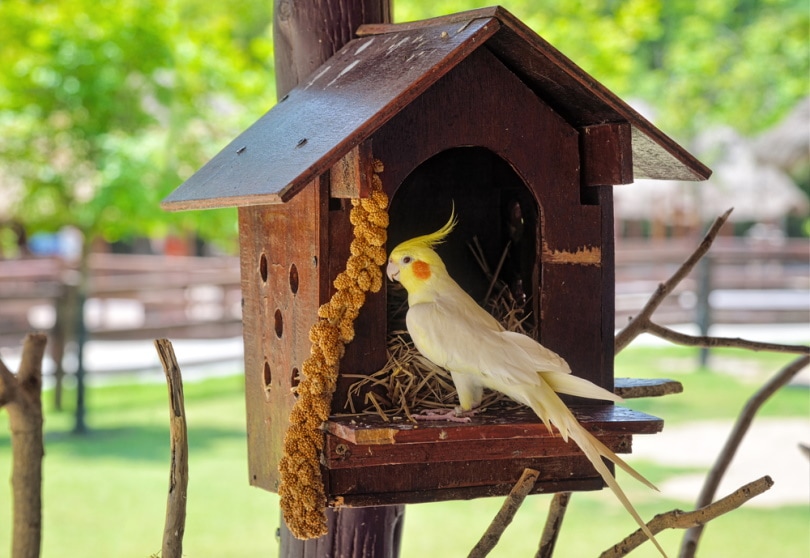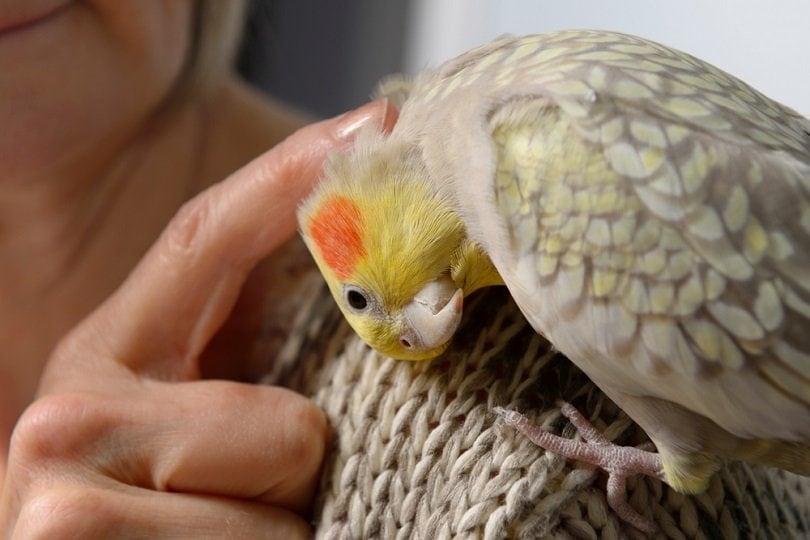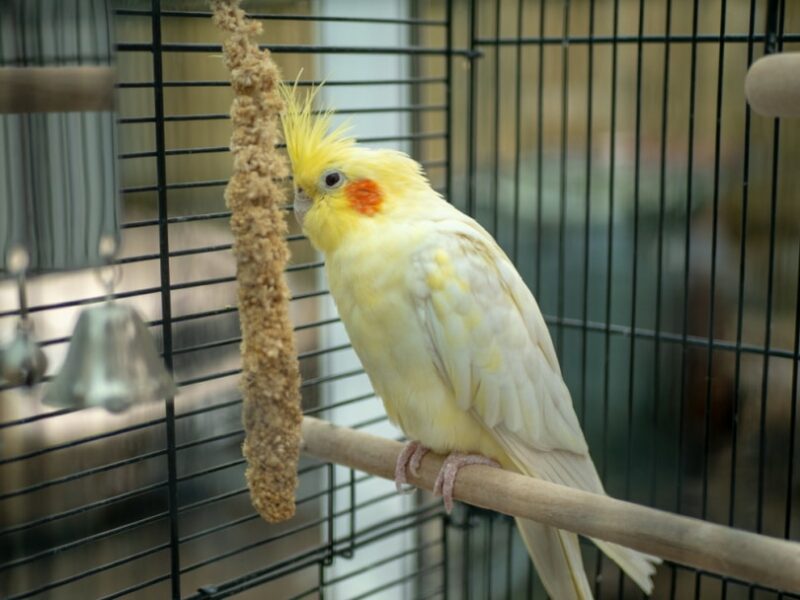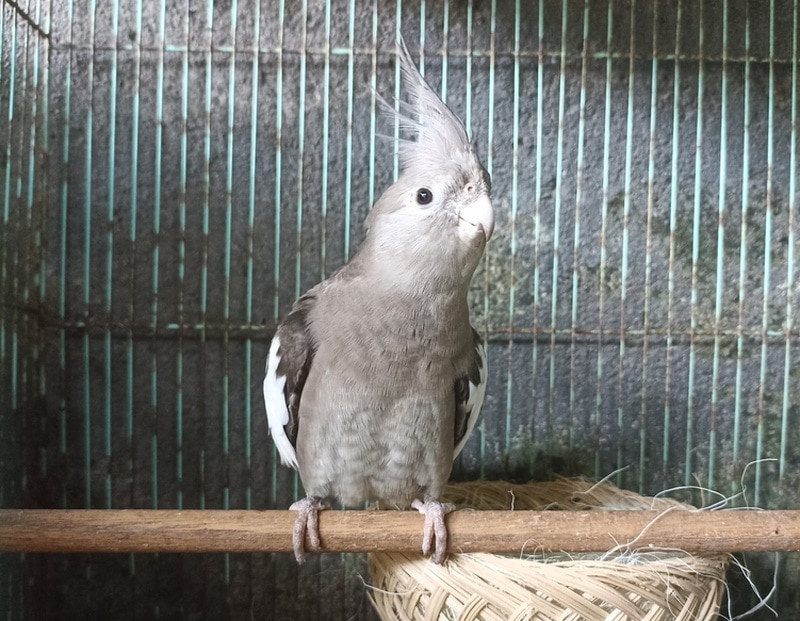How Long Do Pet Cockatiels Live? Average Lifespan, Data & Care
Updated on
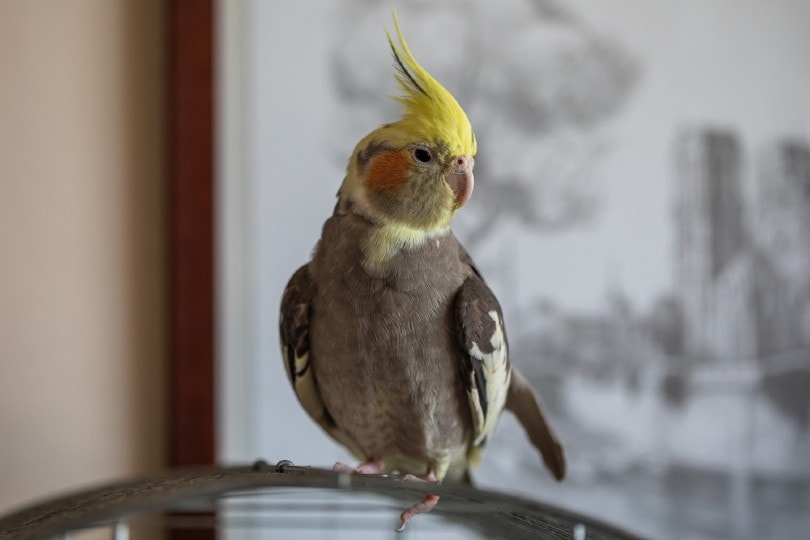
Click to Skip Ahead
Cockatiels may be native to Australia but are among the most popular companion birds worldwide. Known for their gentle, affectionate, and intelligent personalities, cockatiels are one of the best pets you can get.
Most people adopting a cockatiel for the first time are curious about the expected lifespan. A pet cockatiel can live up to 25 years, though some can live longer. The oldest confirmed cockatiel lived to be 36. This is one pet that’s not a short-term commitment.
Keep reading to learn more about the cockatiel’s average lifespan and the factors that can affect how long it lives.
What’s the Average Lifespan of a Cockatiel?
Pet cockatiels can live anywhere between 15 and 20 years. But, thanks to advances in avian medicine and nutrition, it’s not unheard of for these beautiful birds to live well into their late twenties.
Cockatiels in the wild live between 10 to 15 years as they face many more challenges than their pet counterparts.
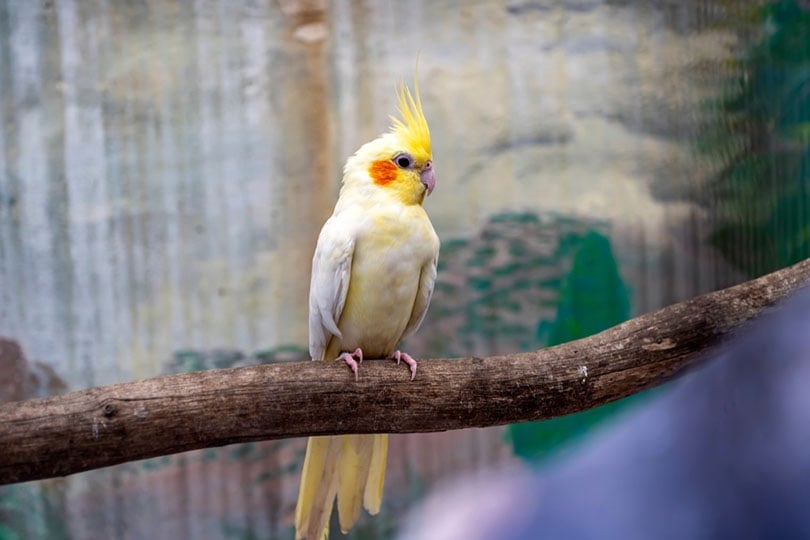
Why Do Some Cockatiels Live Longer Than Others?
Now that you have a general idea of how long cockatiels can live let’s look at some contributing factors that can shorten or lengthen their lifespans.
1. Nutrition
As with almost every living thing, a healthy and balanced diet is crucial for promoting a longer lifespan. Unfortunately, many well-meaning bird owners fudge this part up, believing that all their cockatiel needs to survive is seeds.
While it’s true that seeds make up a part of a cockatiel’s diet, they shouldn’t be fed a diet comprised solely of seeds.
Like all parrots, cockatiels need a balanced and varied diet. Such a diet often incorporates a healthy pellet as a base and additional foods to ensure complete nutrition. These additional foods include the following:
- Seeds
- Nuts
- Fruits
- Vegetables
Supplements should only be provided after consultation with an avian or exotic veterinarian. Though additional supplements may sound like a good idea, remember that excess nutrition may be detrimental to your bird’s health, too.
2. Environment and Conditions
3. Housing
Companion cockatiels kept in a too-small cage cannot move about as they like. This inactivity can lead to weight gain and obesity, putting your pet at risk for developing certain health conditions. The boredom of living in a small cage may also result in psychological issues (such as self-mutilation or aggression toward other cage mates or humans).
Proper hygiene and cleaning protocols should also be in place as all pets have the fundamental right to live an environment that’s conducive for their overall health and well-being. This includes husbandry tasks: keeping the cage clean, discarding uneaten food on a daily basis, and ensuring your bird has access to clean, fresh drinking water at all times.
Birds also require mental stimulation and interaction to ensure their well-being.
4. Mental Stimulation
5. Healthcare
While wild cockatiels will most likely never pay a visit to the vet, you need to keep tabs on your companion bird’s health with regular visits to a qualified avian veterinarian. Periodic check-ups allow your medical team to establish a baseline to catch potential health problems before they have a chance to develop into something life-threatening. Preventative health care is an investment into the future of your cockatiel.
6. Genetics
Finally, the genetics of your cockatiel play a part in determining their maximum potential age. Birds that are not inbred and are a result of careful selective breeding have a genetic edge over birds that are inbred or bred without proper planning or screening of potential parents. It is therefore important to purchase your cockatiel from a credible breeder. Ask your breeder for information about your bird’s lineage and genetic tests.
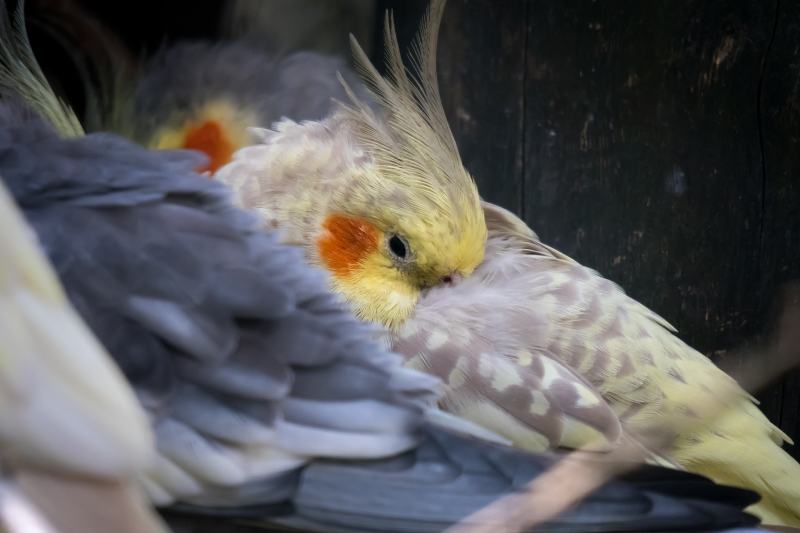
The 5 Life Stages of a Cockatiel
Hatchlings
Hatchlings are newborn birds that have just hatched from their eggs. Newly hatched cockatiels are born featherless with their eyes closed.
Nestlings
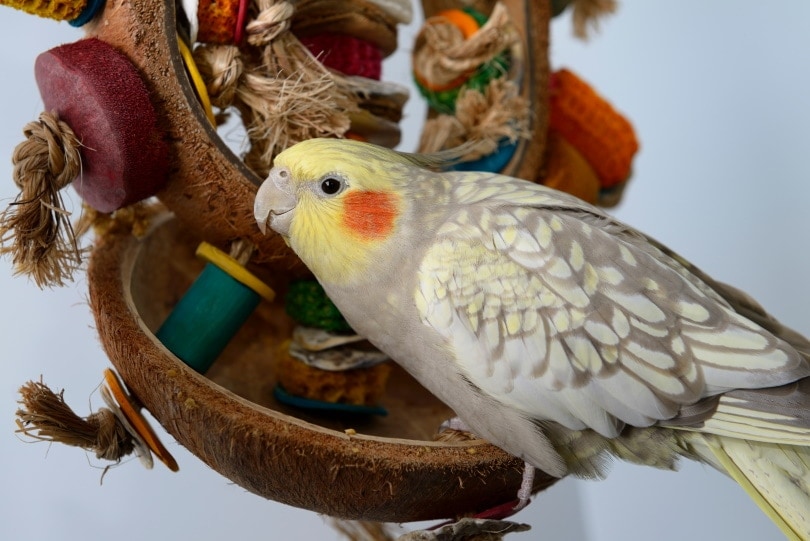
Fledglings
Once cockatiels begin leaving the nest and acquire their first set of flight feathers, they are known as fledglings. This typically occurs between weeks four and five. Fledgling cockatiels are awkward and can only fly short distances, though they’re quite active and can hop around. They are still dependent on their parents for food at this stage.
Juveniles
Cockatiels become juveniles after developing their first plumage of hard feathers. At this stage, the young birds will begin foraging for food independently and exhibiting their independence by flying further and longer.
Adult
Conclusion
Cockatiels can live very long lives compared to other common domesticated animals. So, if you’re adopting one, ensure you’ve considered its long lifespan and whether you’re willing to care for a bird for 20+ years. It’s a huge responsibility but an extremely rewarding one. There’s nothing like getting a cockatiel snuggle or listening to your cockatiel sing after a long, hard day.
See also:
- Pearl Cockatiel: Facts, Origin & History (With Pictures)
- Emerald (Olive) Cockatiel: Pictures, Facts & History
Featured Image Credit: Birute Vijeikiene, Shutterstock


